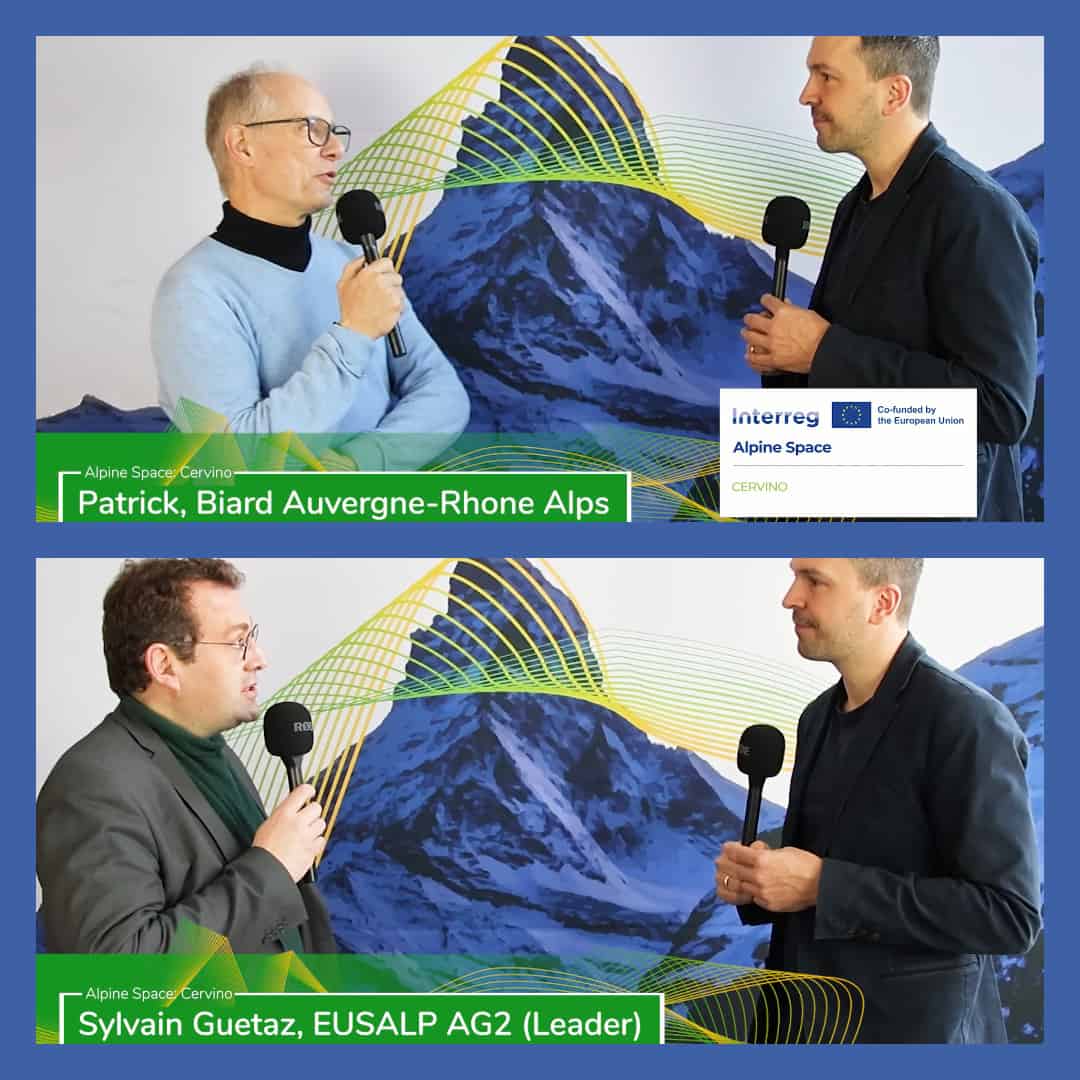Ronald Regan said information is the oxygen of the modern age. Equivalently spoken is data the oxygen for planning reliability. Especially when it comes to long term strategies within complex systems, political, economic and civic players depend on reliable statistics in order to navigate their roadmaps into the right direction. That’s why the Interreg sponsored project CERVINO is trying to collect transregional energy data from the Alpine region and create an easily accessible energy data platform for anyone who might profit from it. Mainly Alpine Space energy projects will benefit from the portrayed energy flows between and within the considered regions. However, other stakeholder will make use out of the CERVINO generated data basis for their own interests and thus -to a certain degree- significantly contribute in order to achieve the superior EU climate goal of being CO2 neutral by 2050.
Gathering different perspectives on how a comprehensive energy data base might be relevant as a trans-sectoral instrument was one of the targets when the CERVINO team convened brief interviews with different Action Group (AG) members, while several of them met in Moûtiers for an international hydrogen conference. Stefan Drexlmeier, managing director at the Civic Foundation Energiewende Oberland, took the chance to question a few experts on how the CERVINO project goals might be a useful resource for their individual subjects. Among others, Stefan Drexlmeier encountered Sylvan Guetaz, known as being the leader of the AG 2 group, responsible for every economic issue within the EUSALP (European strategy within the Alpine region). Guatez vehemently underlined that energy is often the key for economic development. New types of industries and other ways of renewable industrial power supply are absolutely crucial in order to decrease the disastrous consequences of climate change. Decarbonization of industries is going to be a key point in the near future. This goal cannot only be reached by an entire transformation of the industrial energy supply, but rather by reducing the overall amount of energy that is currently required to run the economic system. Therefore, a comprehensive and reliable energy data platform is indispensable taking into consideration the upcoming energy management challenge in the economic sector. Last but not least, Guetaz is hoping for numerous synergy effects that might appear when the two sectors AG 9 and AG 2 continue to exchange their work results. Progress is rarely created by individuals. Progress arises multi-causal and when interaction takes place.
Stefan Drexlmeier and Patrick Biard, a member of the AG 9 group, later discussed the difficulties concerning the maintenance of the new CERVINO created data observatory. They both agreed that if every participant and the project partners of CERVINO can keep up their long-term goal to feed the platform with new and actual data, the project circle might overcome the project borders and create a useful tool for other EUSALP sectors and their associated stakeholders. Especially for those who pursue a transformation of energy management in order to wash it green.
Watch Patrick Biard interview
Watch Sylvain Guetaz interview



